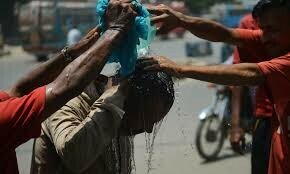HYDERABAD, Jan 5: Speakers on the concluding day of a six-day theatre festival have resolved to continue struggle against discrimination and violence against women in all its manifestations and demanded repeal of the Hudood Ordinance.
The festival, held to mark 125 years of theatre in Sindh, was jointly organized by the Indus Valley Theatre, Community Advocacy Trust and Sindh Community Theatre Network at the Sindh Museum here from December 31 to January 5.
The closing day was fixed for discussion on violence against women, organized by an NGO, Oxfam. Speaking on the occasion, People's Party Parliamentarians MPA Saussi Palijo demanded repeal of Hudood Ordinance, saying that it was a man-made law and not divine which could not be brought into question.
She said that the then military dictator had promulgated the ordinance in the name of Islam to appease retrogressive forces and gain their support in return. She said that theatre could play a pivotal role in highlighting miseries of women and inculcating awareness among masses against all kinds of violence against womenfolk.
Criticizing promulgation the honour killing bill, the MPA said that even the most relevant segment of the society, women - and other civil society members had not been consulted and added that Qisas and Diyat laws had not been reviewed which should have been done.
She argued that in an honour killing case, the Wali of the killed woman might pardon the murder accused notwithstanding the fact that even the Shariat Court had allowed marriage of a woman without the consent of a Wali.
Ms Palijo said that choice of marriage should have been established as the fundamental right of a woman. Recalling the cases of Shaista Almani and Shamshad Shar, she told the gathering that the Sindh High Court had banned jirga but police officers continued to support jirgas in Sindh.
Criticising Deputy Speaker of the Sindh Assembly Rahila Tiwana for not raising voice when Provincial Minister Manzoor Panwhar supported the jirga system, she said that deputy speaker was otherwise very fond of attending programmes held in support of women.
She said that whenever a man got fed up with his wife, he lodged a Hudood case against her with the result that victims become accused in the Hudood cases.
She said that there were loopholes in criminal justice system and referred to recent amendments to laws in a foreign country where cases of discrimination and domestic violence against women would be heard by women judges and prosecuted by women advocates. She called for introducing similar system in Pakistan.
She pointed out that the Pakistan Muslim League and Muttahida Qaumi Movement legislators could ensure repeal of the Hudood Ordinance because they were in a majority. Columnist Amar Sindhu relied on the Human Rights Commission of Pakistan's annual report and referred to cases of discrimination and domestic violence against women.
She said that 75 per cent women in the country fell prey to domestic and physical violence whereas invisible violence remained unreported for fear of retaliation and added that one out of four women was assaulted.
She pointed out that last year, 1,065 women had been subjected to gang-rape, 2,866 murdered, 1,511 killed in the name of karo kari, 3,273 suffered injuries, 530 were burnt, and 447 women closely faced death.
She said that violence against women was never taken seriously and members of civil society always gave it cold shoulder. She deplored that women were also facing invisible violence in offices, homes and at other places which needed to be highlighted because it could not be done away with either by administration or judiciary. Ayaz Latif Palio, Noor Mohammad Bajeer of the SPO and Ehsan Leghari of Oxfam also spoke on the occasion.











































